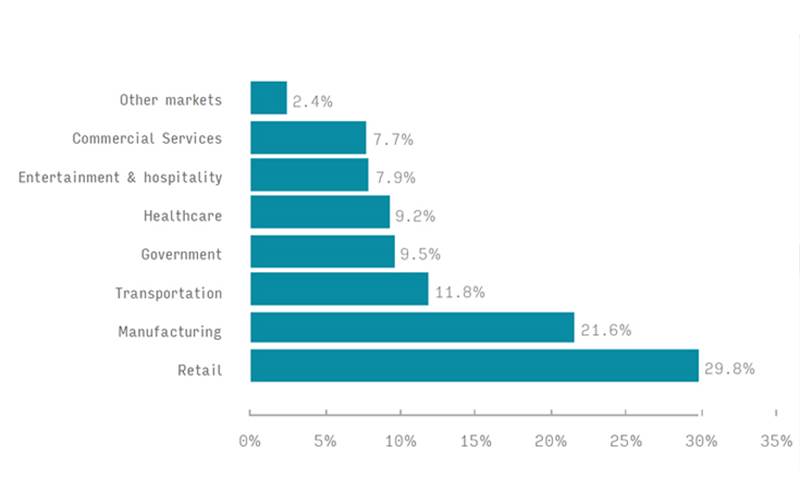Stability to return to USD 42.6-billion thermal market: Smithers
New demand for thermal print equipment and consumables will increase sales across the next five years according to a new market study – The Future of Thermal Printing to 2029 – from Smithers.
22 May 2024 | By Charmiane Alexander
Combined sales of direct thermal (DT), thermal transfer (TT), and dye diffusion thermal transfer (D2T2) print technologies are projected to reach USD 42.6-billion worldwide this year at end-user pricing. Smithers latest data show that consumables (papers, labels, tickets & tags, ribbons photo media, etc) account for the majority of this, 72.6% of the market, with hardware representing the remainder.
An equilibrium is returning to the market, after the disruption of Covid-19 struck several core markets, including transportation, retail, and entertainment. Purchases of thermal print equipment were impacted by postponement of large hardware projects caused by the tightening of corporate budgets over this period. Widespread stockpiling of thermal print consumables led to a subsequent release of inventory which depressed revenues in 2023.
These factors are now levelling out, and Smithers forecasts a steady increase at a compound annual growth rate (CAGR) of 3.1% for the next five years. This will push global market value to USD 49.6-billion in 2029, at constant prices. With sales of printers increasing relative to supplies, supported by increased use of mobile and barcode thermal print equipment.
Smithers identifies a series of factors which will shape the evolution of the thermal print marketplace across these five years.
While still the largest end-use segment, sales into retail environments will be constrained, and below their historic average. Demand for printed receipts is expected to continue to decline as more transactions are handled electronically. Additionally, sales from conventional retail will continue to be diverted into e-commerce although here the switch is compensated for by the need for more thermally printed delivery labels. There are also gains to be made in thermal receipts for ‘buy online pickup in store’ purchases, and combined POS receipts and labels in some sectors, notably fast-food restaurants.
Electronic ticketing poses a real threat to thermal printing in the ticket and travel sector; significant substitution has already taken place. For security documents, while there is a noticeable shift toward providing credentials electronically, the practical need for a physical backup copy will limit any impact on sales volumes.
Sales growth to 2029 will be the fastest in manufacturing and healthcare. Specialty thermal transfer overprint (TTO) devices used to print date and batch codes will see greater use as enhanced traceability requirements are imposed by law, principally on pharmaceutical shipments. And in manufacturing the wider deployment of smart, automated inventory systems is creating a demand for manufacturers who can integrate conventional barcodes and 2D data matrix codes with RFID tags and readers.
DT will make further gains in healthcare in certain regions due to regulatory changes. The US Health Insurance Portability Accountability Act (HIPAA) has strict protocols on the potential fraudulent use of the reverse imprinted image on discarded ribbons, which are completely avoided when employing newer formulation label stocks.
Across all end-uses, thermal print OEMs are under pressure to deliver systems that have a lower environmental impact – two noticeable trends for 2024-2029 will be the wider use of linerless label formats and an accelerated changeover to phenol-free formulations for direct thermal systems.












 See All
See All